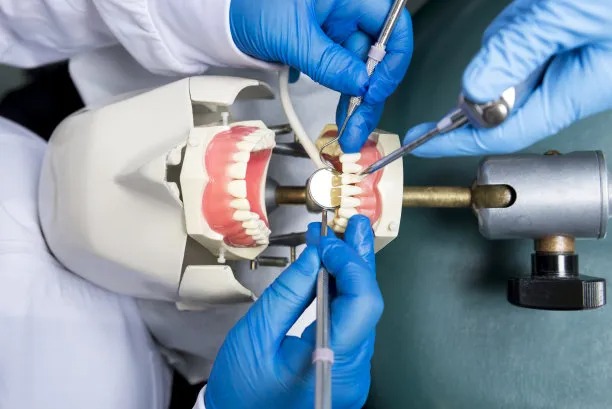Understanding the Impact of Periodontal Disease on Oral Health and Overall Wellbeing in Adults and Its Effective Management Strategies
Summary: Periodontal disease, a prevalent condition among adults, has significant implications not only for oral health but also for overall wellbeing. This article explores the multifaceted impacts of periodontal disease, including its contribution to severe health issues, the psychological effects related to oral health, the management strategies available, and the importance of regular dental care. By understanding these aspects, individuals can better navigate prevention and treatment options that contribute to improved health outcomes. Effective management strategies will also be highlighted, offering a comprehensive view on maintaining oral and overall health.
1. The Severe Health Risks Associated with Periodontal Disease

Periodontal disease, often resulting from bacterial infections in the gums, is linked significantly to various systemic health problems. Research shows that individuals suffering from periodontal disease are at a higher risk for cardiovascular diseases. The inflammation caused by gum disease can elevate systemic inflammatory markers, which may contribute to plaque buildup in arteries, leading to heart-related ailments.
Moreover, the relationship between periodontal disease and diabetes cannot be overlooked. Chronic periodontal inflammation can compromise blood sugar control, making it more difficult for diabetic patients to manage their condition. This creates a vicious cycle where poorly controlled diabetes exacerbates gum problems, eliciting a need for more robust management systems.
Additionally, there is growing evidence suggesting that periodontal disease may influence respiratory health. Bacteria from the oral cavity can be aspirated into the lungs, causing respiratory infections and exacerbating chronic lung diseases. Understanding these health risks underscores the importance of addressing periodontal disease proactively to safeguard not just oral health but overall physical health as well.
2. Psychological Effects of Gum Disease on Individuals
The ramifications of periodontal disease extend beyond physiological health, significantly affecting psychological wellbeing. Adults with periodontal issues often experience low self-esteem and social anxiety linked to their oral health status. Several studies indicate that individuals with visible gum disease may feel disinclined to engage socially, fearing negative judgments about their appearance and breath.
Furthermore, the chronic pain that can accompany periodontal disease can lead to heightened stress and anxiety levels. This chronic stress can create a detrimental cycle, where anxiety worsens dental hygiene practices, leading to further oral health deterioration. Managing these psychological factors is crucial for encouraging proper care and treatment of periodontal disease.
Creating awareness about the psychological implications associated with periodontal disease is essential in promoting holistic health strategies. It encourages individuals to seek help not just for their physical symptoms but also for achieving mental wellness. Addressing these psychological aspects through counseling and support networks can improve quality of life significantly.
3. Effective Management Strategies for Periodontal Disease
Preventing and managing periodontal disease requires a multifaceted approach tailored to individual needs. First and foremost, maintaining rigorous oral hygiene plays a crucial role. Brushing at least twice a day, along with daily flossing, is essential in removing plaque buildup and preventing the progression of gum disease.
Secondly, routine dental visits are critical. Professional cleanings allow dental hygienists to remove tartar that regular brushing cannot, along with providing an opportunity for early detection of periodontal diseases. Dentists can also offer personalized advice on the best oral hygiene practices based on individual health conditions.
Another vital component is lifestyle modifications, such as a balanced diet and smoking cessation. Nutritional choices rich in vitamins and minerals can enhance gum health, while eliminating tobacco use has been shown to reduce the risk of developing periodontal diseases. Adopting these changes, along with maintaining consistent dental care, can significantly curb the prevalence of gum disease.
4. The Role of Regular Dental Care in Prevention
Regular dental care is not just a response to existing problems but a proactive measure in preventing periodontal disease. Consistency is key; adults should visit their dentist minimally once every six months for check-ups and cleaning. This habit can lead to the early detection of potential issues, facilitating prompt intervention and management.
Moreover, educating patients about the relationship between their lifestyle choices and oral health is essential. By understanding how factors such as diet, stress, and smoking contribute significantly to periodontal health, individuals can make informed decisions that promote long-term wellbeing.
In conclusion, regular dental care acts as a powerful ally in preventing periodontal disease and promoting overall health. When adults view dental visits not merely as remedial but as integral to their health technology, it creates a culture of proactive health maintenance that benefits overall wellbeing.
Summary:
Understanding the extensive impacts of periodontal disease on both oral health and general wellbeing empowers adults to prioritize their oral care. From significant health risks and psychological ramifications to effective management strategies and the importance of routine dental visits, recognizing these elements creates pathways for healthier choices and improved health outcomes.
This article is compiled by Vickong Dental and the content is for reference only.



